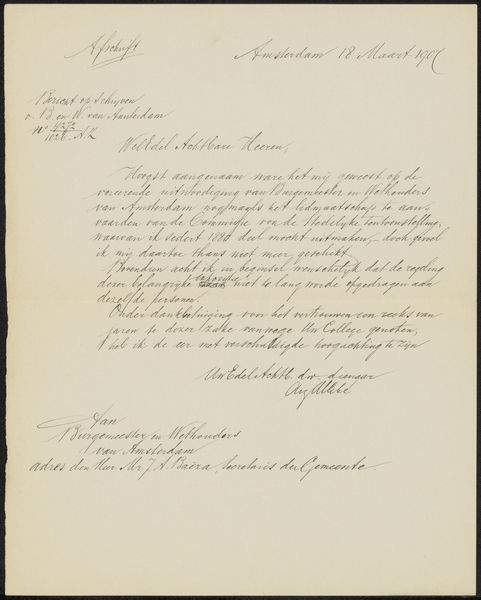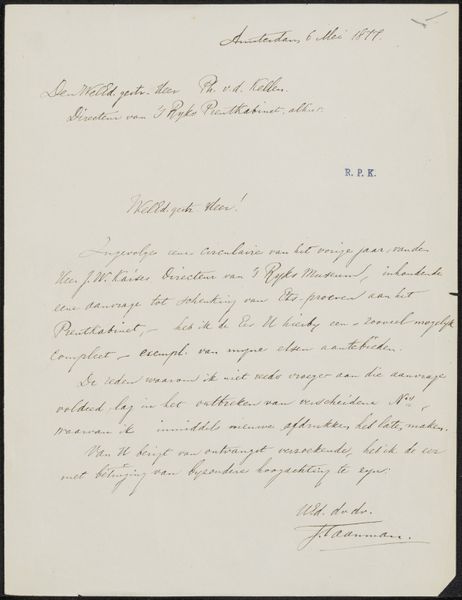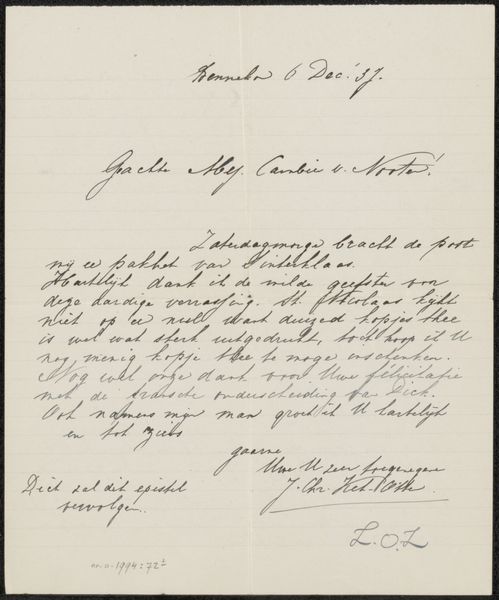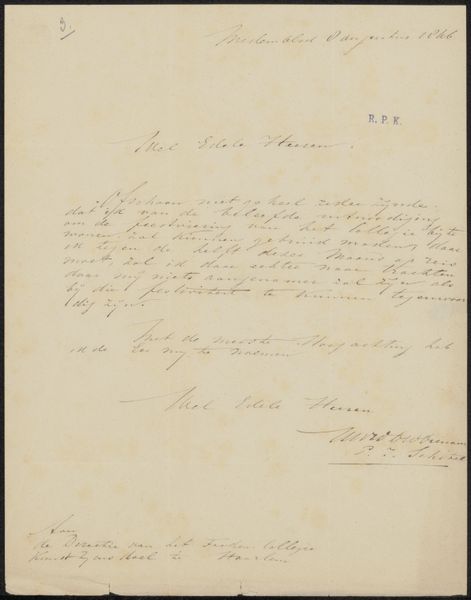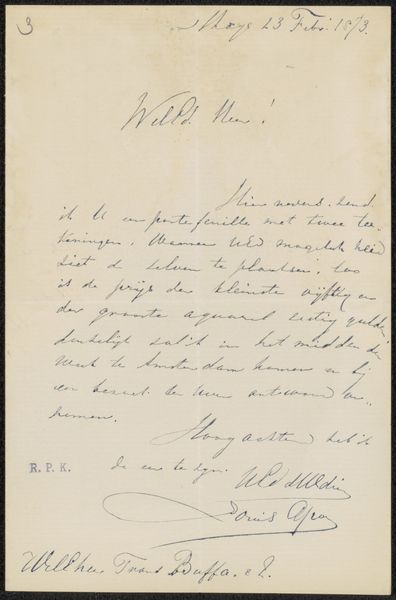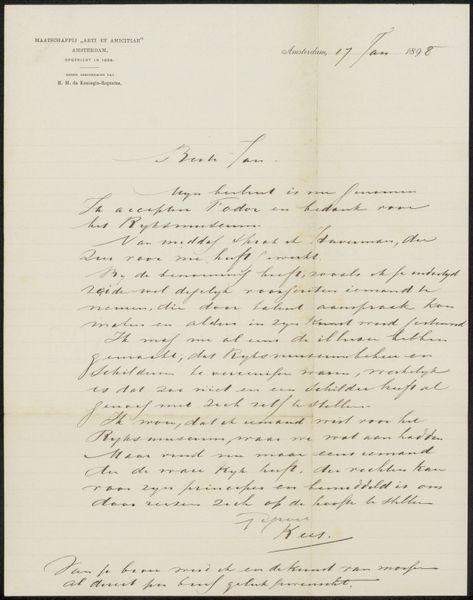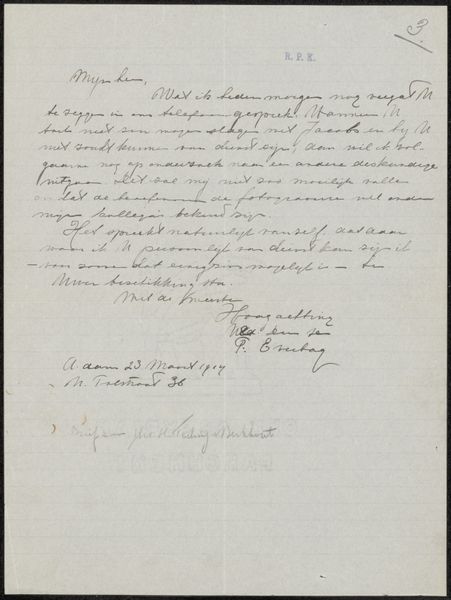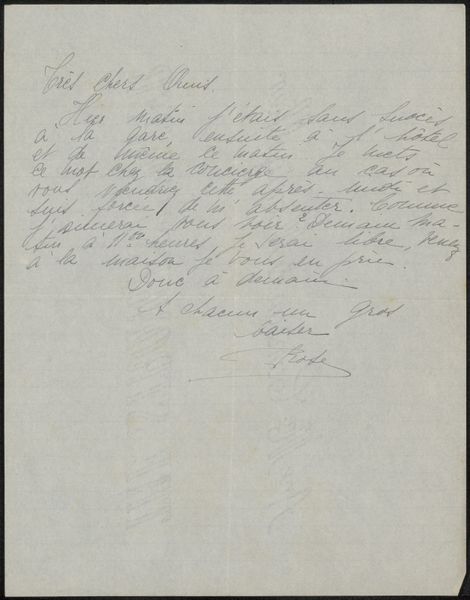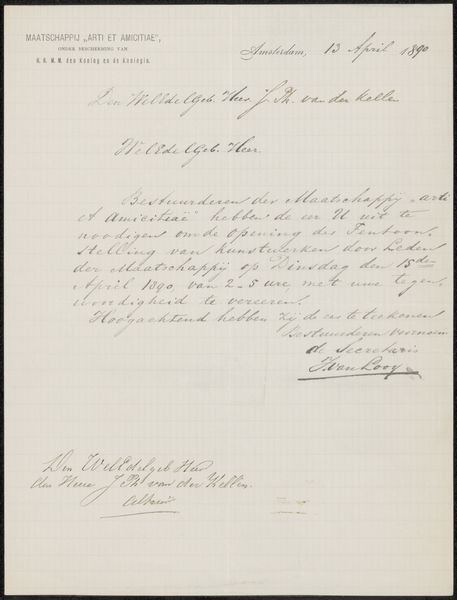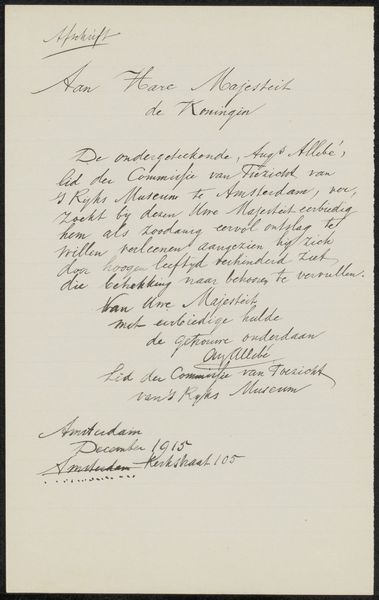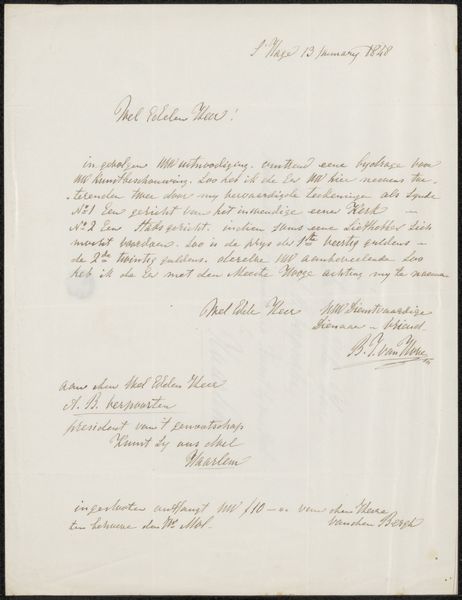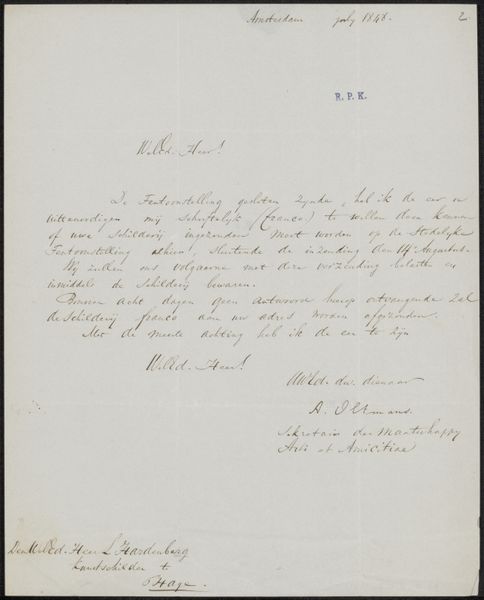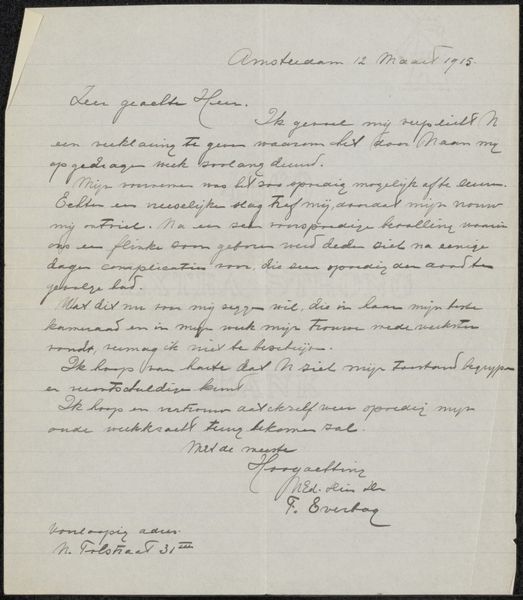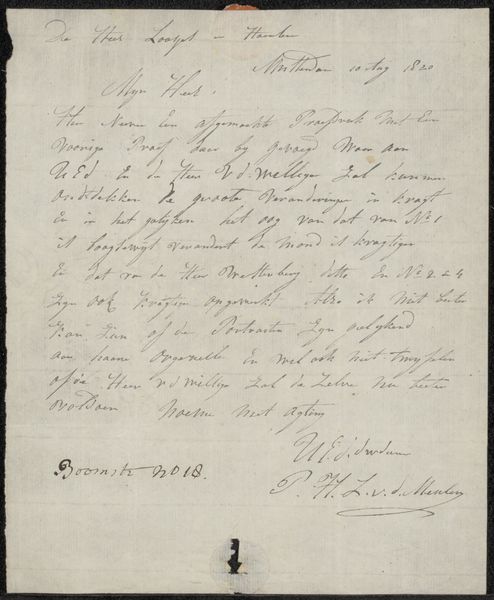
drawing, paper, ink, pen
#
portrait
#
drawing
#
ink paper printed
#
hand drawn type
#
paper
#
personal sketchbook
#
ink
#
hand-drawn typeface
#
ink drawing experimentation
#
romanticism
#
pen-ink sketch
#
ink colored
#
pen work
#
sketchbook drawing
#
pen
#
sketchbook art
#
calligraphy
Copyright: Rijks Museum: Open Domain
Curator: This is "Brief aan Jan van Harderwijk," a letter penned around 1837, possibly by Bartholomeus Johannes van Hove, housed here at the Rijksmuseum. The medium is ink on paper. Editor: Ah, a handwritten letter. Instantly, I get a sense of intimacy, a glimpse into a personal exchange from a time long past. There’s a fragile beauty to it, a vulnerability. It reminds me that art need not be monumental to move us. Curator: Exactly. The materials themselves tell a story. Paper was precious, ink carefully made. Calligraphy was itself a craft and discipline, demonstrating literacy, social standing and cultural identity. Look closely, and you'll notice different hand-drawn typefaces used. This personal touch sets the letter apart from later industrialized printing practices. Editor: You can almost feel the weight of the pen in the hand. There’s a performative aspect to it too, isn’t there? Like an artist composing a drawing in real-time, thinking and breathing, even though this serves primarily as correspondence. Imagine writing that! No hitting ‘delete’ or spellcheck. Every mark matters. Curator: Indeed. And its context: a moment where personal correspondence held more significance in social and professional networks. Consider the labor invested not just by the author but by the messenger. The consumption process itself differs significantly compared to email correspondence today. Editor: Absolutely. I can imagine holding this letter in my own hands. Almost sensing a hidden dimension beyond just its informational aspect. Something evocative, a shadow of feeling of all its participants – author, addressee, and that courier carrying words. A fragile web connecting distant souls. Curator: So, by viewing this as more than just a historical document but as a material object with layers of craft and socio-economic conditions of the 1800’s, the artifact becomes incredibly engaging. We witness shifts from individualized artistry towards the modern automated textual production of our information age. Editor: A fascinating and very personal journey into words and making! Curator: A good reflection.
Comments
No comments
Be the first to comment and join the conversation on the ultimate creative platform.
